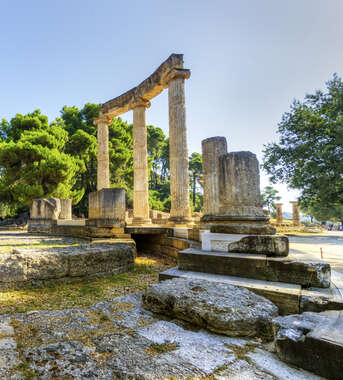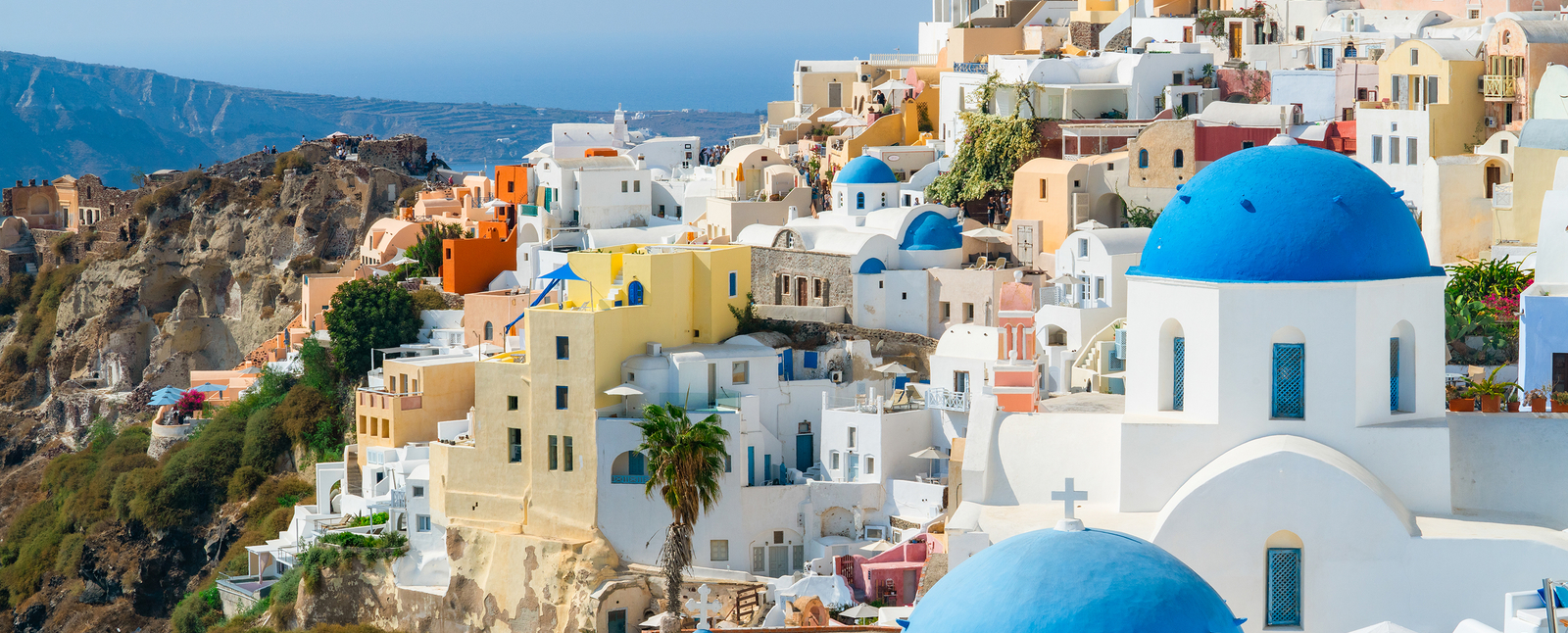History of the Olympics: 7 Facts About the Origins and Evolution
- Ancient Origins: Started 776 BCE in Olympia, Greece, as religious festivals for Zeus. Early events included stadion, pentathlon, and chariot races.
- Revival: Ancient Games ended 393 CE. Pierre de Coubertin revived them in 1896, with the first modern Olympics in Athens.
- Modern Evolution: Grew from small events to a global spectacle, adding torch relay, Winter/Paralympics, and professional athletes.
- Symbolism & Moments: Rings symbolize unity; flame links to tradition. Key moments: Jesse Owens (1936), Munich tragedy (1972), Refugee Team (2016).
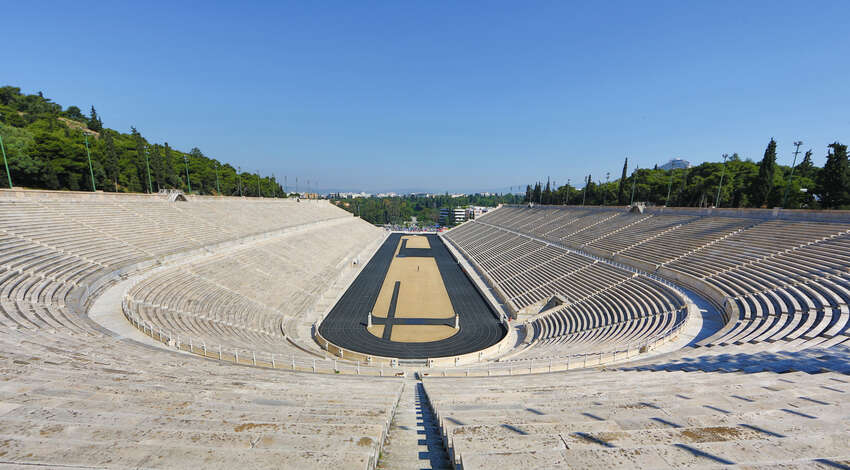
The roar of the crowd, the triumph of victory, the agony of defeat — these emotions have defined the Olympic Games for nearly three millennia. But do you really know about the history of the Olympics? From its humble beginnings in ancient Greece to the spectacular global celebration we know today, the Olympic Games® have evolved into one of humanity's most enduring traditions.
Whether you're planning Greece tours to see where it all began or simply curious about this remarkable institution, understanding the Olympic Games history enriches our appreciation for this extraordinary celebration of human potential.
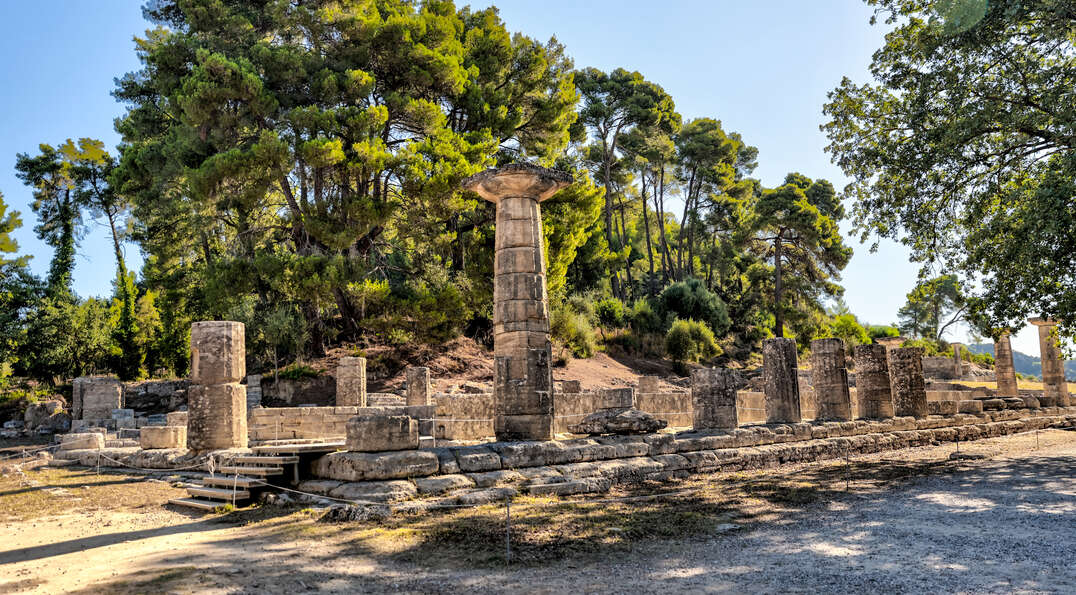
1. The Birth of the Ancient Greek Olympics: When Did the Olympics Start?
The Ancient Greek Olympics didn't emerge overnight — it grew from deep cultural and religious roots that stretched back to the 8th century B.C.E. When did the Olympics start exactly? Historians generally agree that the first recorded Olympic Games took place in 776 B.C.E in Olympia, a sanctuary site in the western Peloponnese region.
The games weren't only athletic contests, but also larger religious celebrations dedicated to Zeus, the king of the Greek gods. Every four years, Greeks from across the Mediterranean world would declare a sacred truce, laying down their weapons to journey to Olympia.
The site itself was, and still is, stunning. Tucked away in a valley between two rivers, Olympia boasted incredible temples, including the famous Temple of Zeus, which, incredibly, housed one of the Seven Wonders of the Ancient World. Today's travelers can still walk among these ancient ruins and feel the weight of history beneath their feet.
For nearly 12 centuries, these games continued uninterrupted, becoming the longest-running organized sporting event in human history.
2. The Ancient Greek Olympics: Events and Traditions
The Ancient Greek Olympics bore little resemblance to today's multi-sport extravaganza. Initially, there was only one event: the stadion, a sprint of roughly 200 meters. As the games gained popularity, more events were added, culminating in a five-day festival that became the highlight of the Greek calendar.
By the classical period, the Olympics featured 18 events. The pentathlon tested athletes across five disciplines: running, long jump, discus, javelin and wrestling. Boxing was brutal — no weight classes, no time limits, and fights continued until one competitor surrendered. The pankration combined elements of wrestling and boxing, which we'd recognize today as mixed martial arts.
Perhaps most prestigious was the chariot race, which required enormous wealth to own and maintain a team of racing horses. Victory brought glory not just to the charioteer, but to the owner.
Winners received olive wreaths cut from a sacred tree near the Temple of Zeus, but the real prize was eternal glory. Olympic victors became legends in their hometowns, often receiving a lifetime of free meals and statues erected in their honor.
3. The Fall of the Ancient Olympics and the Rise of the Modern Games
The Olympics didn't end with a bang — they faded gradually as the Roman Empire absorbed Greek culture and Christianity spread throughout the Mediterranean. Emperor Theodosius I officially banned the games in 393 or 394 C.E. as part of his campaign against pagan festivals.
For over 1,500 years, the Olympic flame remained extinguished. But the idea never truly died. The modern Olympics owe their current existence to a French aristocrat named Pierre de Coubertin. Deeply concerned about France's physical fitness after their defeat in the Franco-Prussian War, Coubertin became fascinated with the educational potential of sport.
In 1894, Coubertin founded the International Olympic Committee, and two years later, his dream became reality. The choice of Athens for the first modern Olympics was symbolic, becoming a tribute to the Games' ancient origins.
4. The First Modern Olympic Games: A New Era Begins
The first modern Olympic Games, held in Athens in 1896, were a far cry from today's massive productions, but they nonetheless captured the world's imagination. Just 241 athletes from 14 nations competed in 43 events over a 10-day period. All competitors were men, for women wouldn't be allowed to participate until the 1900 Paris Olympics.
The 1896 Olympics faced numerous challenges. Funding was so tight that ticket sales and private donations barely covered expenses. Some events were held in less-than-ideal conditions — the swimming competition took place in the frigid waters of the Bay of Zea, where swimmers battled 12-foot waves.
Despite these humble beginnings, the games were declared a success. The international press coverage was extensive, and Coubertin's vision of using sport to unite nations seemed within reach.
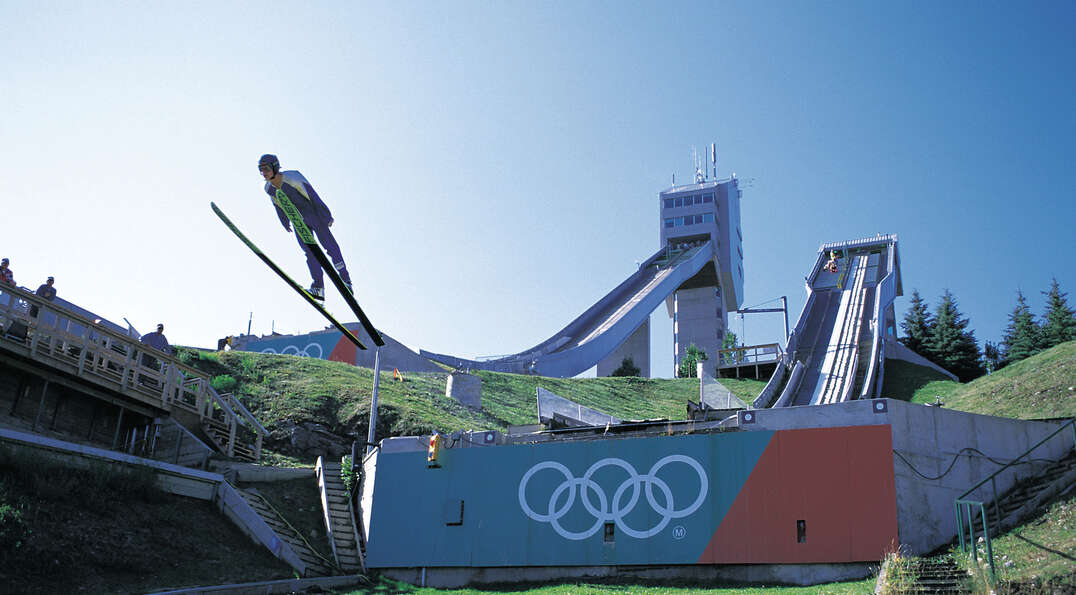
5. The Evolution of the Olympic Games: From Athens to Today
The Olympic history, covering the period from 1896 to the present, is a story of continuous growth and adaptation. The early games were small, sometimes chaotic affairs. The 1900 Paris Olympics were held alongside the World's Fair and stretched over five months. Many athletes didn't even realize they were competing in the Olympics.
The games gradually found their rhythm. Stockholm 1912 featured athletes from all inhabited continents for the first time. Despite being overshadowed by Nazi propaganda, the 1936 Berlin Olympics introduced the torch relay that remains a beloved tradition to this day.
After World War II, the Olympics transformed into the massive global spectacle we know today. Television coverage revolutionized the games, bringing Olympic drama into homes worldwide. The addition of the Winter Olympics in 1924 doubled the celebration, and the Paralympics, first held in 1960, extended Olympic ideals to athletes with disabilities.
The nature of the games also saw a significant shift when commercial sponsors and professional athletes got involved. While it may have altered the original spirit of the games, it also enabled the funding of spectacular ceremonies and top-notch facilities that continue to captivate viewers worldwide. Today's Olympics offer over 300 events across dozens of sports, with more than 11,000 athletes from nearly 200 nations.
6. The Symbolism of the Olympics: The Rings and the Flame
The Olympic symbols we recognize today carry deep meaning rooted in both ancient tradition and modern innovation. The five interlocking rings, designed by Pierre de Coubertin in 1913, represent the unity of the five inhabited continents. The colors (blue, yellow, black, green and red) on a white background were chosen because every nation's flag contains at least one of these colors.
The Olympic flame connects modern games directly to their roots, echoing the sacred flame that once burned continuously on the altar of Zeus throughout the games. The modern torch relay, however, began with the 1936 Berlin Olympics. Today, the lighting of the Olympic cauldron marks the official opening of the Games.
The Olympic motto "Citius, Altius, Fortius" (Faster, Higher, Stronger) embodies the spirit of human achievement that drives the games.
7. Notable Moments in Olympic History
The history of the Olympics is marked by moments that have truly touched the human spirit and continue to do so. Jesse Owens' four gold medals at the 1936 Berlin Olympics challenged Nazi racial theories on the world stage. The 1972 Munich Olympics were forever changed by a terrorist attack that claimed 11 Israeli lives.
Muhammad Ali, lighting the 1996 Atlanta Olympic cauldron, his hand trembling from the effects of Parkinson's disease, showed us that Olympic heroes remain heroic long after their competitions end. The 2008 Beijing Olympics opening ceremony redefined spectacular, while the 2016 Rio Olympics featured the first Refugee Olympic Team, giving voice to displaced athletes worldwide.
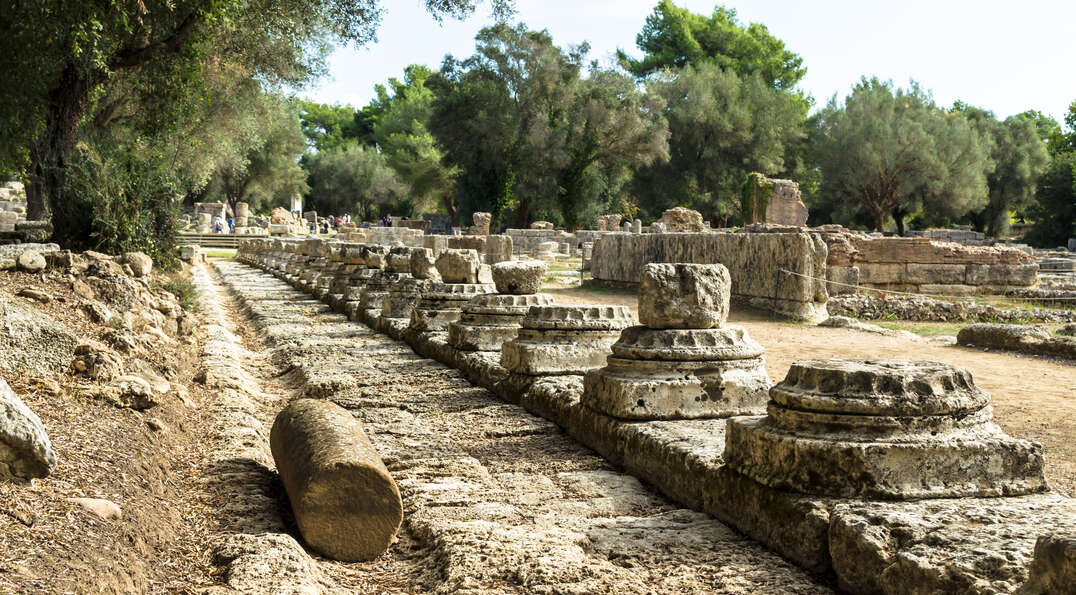
Experience Olympic History with Road Scholar
Road Scholar knows where to explore the ancient wonders of Greece and offers educational senior tours designed to bring the Olympic Games history to life.
Understanding this rich heritage enhances any Olympic viewing experience, but imagine touring the very place where it all began. Educational senior tours to Greece offer the chance to explore Olympia's ancient ruins, stand in the original stadium where the first Olympic victors were crowned and connect personally with this incredible legacy.
Ready to find an adventure and experience Olympic history firsthand?

